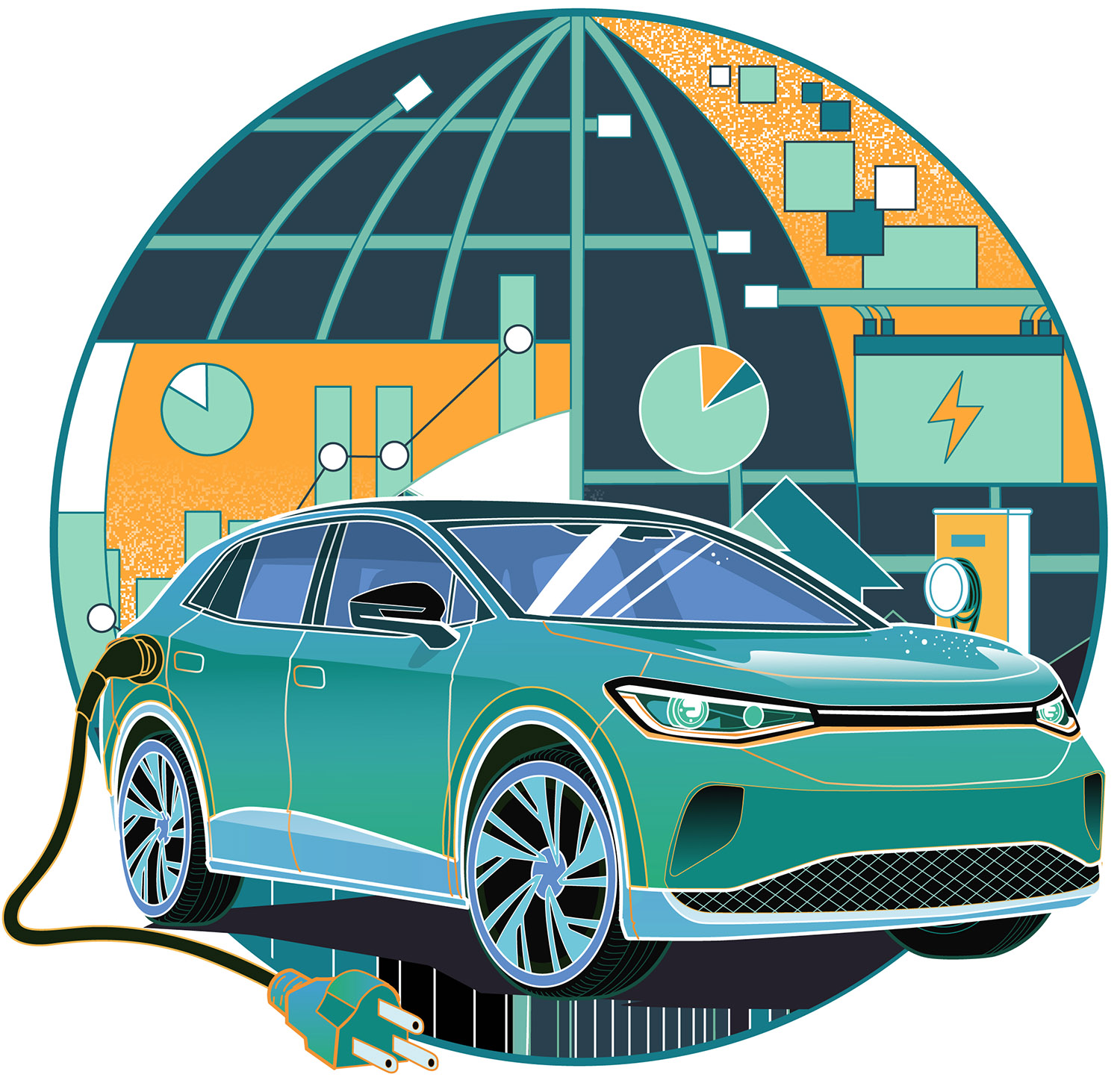
Certain US and European politicians have been pointing fingers at China's electric vehicle industry. However, it is absurd for them to criticize China's EV sector, which plays a significant role in driving global green development.
Electric vehicles (EVs), and their pricing, carbon emissions reduction, longevity and availability are the common topics of discussion in many circles. All EVs, also called new energy vehicles (NEVs), have an electric motor instead of an internal combustion engine. There are also plug-in hybrid EVs and fuel-cell EVs.
READ MORE: Shenzhen EV players head to Europe
Unlike traditional vehicles, electric vehicles (EVs) can reduce emissions because they run on rechargeable electric batteries. Battery electric vehicles (BEVs) produce no tailpipe emissions and operate without a combustion engine. As the world transitions from "global warming" to "global boiling", it is essential to embrace new energy vehicles as a means to mitigate emissions.
But as long as consumers in the developed economies are satisfied with Chinese EVs, it will not be easy for the US and the EU to stop China from leading the global EV market
The global EV market is advancing rapidly. In 2023, for example, about 13.6 million EVs were sold worldwide. Global sales are forecast to grow by 25-30 percent this year, with McKinsey predicting worldwide EV demand to grow six-fold from 2021 to 2030.
BEVs and plug-in hybrid EVs represented 15.8 percent of global light vehicle sales last year, with China boasting the highest market share of NEVs followed by the Nordic countries. The fastest-growing markets included Turkiye, Brazil, Thailand, Malaysia, and Australia. China's role in combating global warming in this regard should be appreciated rather than chided.
It's true China is the leader in EV production and sales. It not only produced and sold the highest number of EVs (9.58 million and 9.49 million units respectively), but also exported 1.2 million EVs last year. And it is expected to produce 11.5 million and export 5.5 million EVs this year.
It should be noted that China's export of EVs have been rapidly increasing due to their quality and performance, rather than due to overcapacity. Some Western politicians often attempt to deny China's market economy status. Instead of doing that, they should embrace a more open global market, allowing market forces to determine market share and enabling consumers to decide which products to purchase. China's growing share of the EV market globally is a result of natural market forces and healthy competition.
What's more, China's EV sector also contributes to global technology development.
The country has made its EV production process more efficient by building special industry and supply chains, and large industry clusters in the Yangtze River Delta, Pearl River Delta and the Chengdu-Chongqing regions.
Over the past decade, China has invested massively to further develop EV technology, and its policies and technological advancements have contributed immensely to its success in the global EV market. In particular, China's advancements in battery technology have been a game changer.
And while China has established the world's largest battery manufacturing value chain, Chinese EV-makers have spent billions of dollars to develop smart car features to make their vehicles safer and more comfortable for consumers, by adding more features such as AI-powered smart car systems, and helping improve the voice recognition and automated parking systems. They are also investing in new features to connect their EVs to phones and home appliances in what is being called a "Human x Car x Home" ecosystem.
In fact, Chinese EV-makers are offering feature-rich, technologically advanced vehicles at competitive prices with strong after-sales support.
Competitors should adhere to market rules and ensure a level playing field for all market participants. China's EV-maker BYD overtook US funded Tesla as the world's biggest EV-making company last year, and China overtook Japan as the world's largest car exporter.
What US and EU politicians should do is to refrain from accusing China's EV sector under the guise of safeguarding national security, and instead allow market players to make their own choice. Just as Elon Musk is increasing investment and participating in the competition in the Chinese market.
ALSO READ: Stronger ties a boost for China-EU relations
However, some countries and automakers are worried about China's success in the global EV market, though they understand that it's not easy to compete with China, as it has established an efficient technological innovation ecosystem and has a huge production capacity. The US and the EU, which benefited from automobile trade for many decades, are now trying to restrict China's EV exports to their markets in an act of economic bullying.
While the European Commission recently launched an anti-subsidy investigation into EV imports to find an excuse to stop Chinese EVs from entering the EU market, the US has been complaining about the oversupply of EVs. But as long as consumers in the developed economies are satisfied with Chinese EVs, it will not be easy for the US and the EU to stop China from leading the global EV market.
The author is a director of BRISL, an independent and pioneering Sri Lankan-led organization, with strong expertise in BRI advice and support.
The views don't necessarily reflect those of China Daily.


